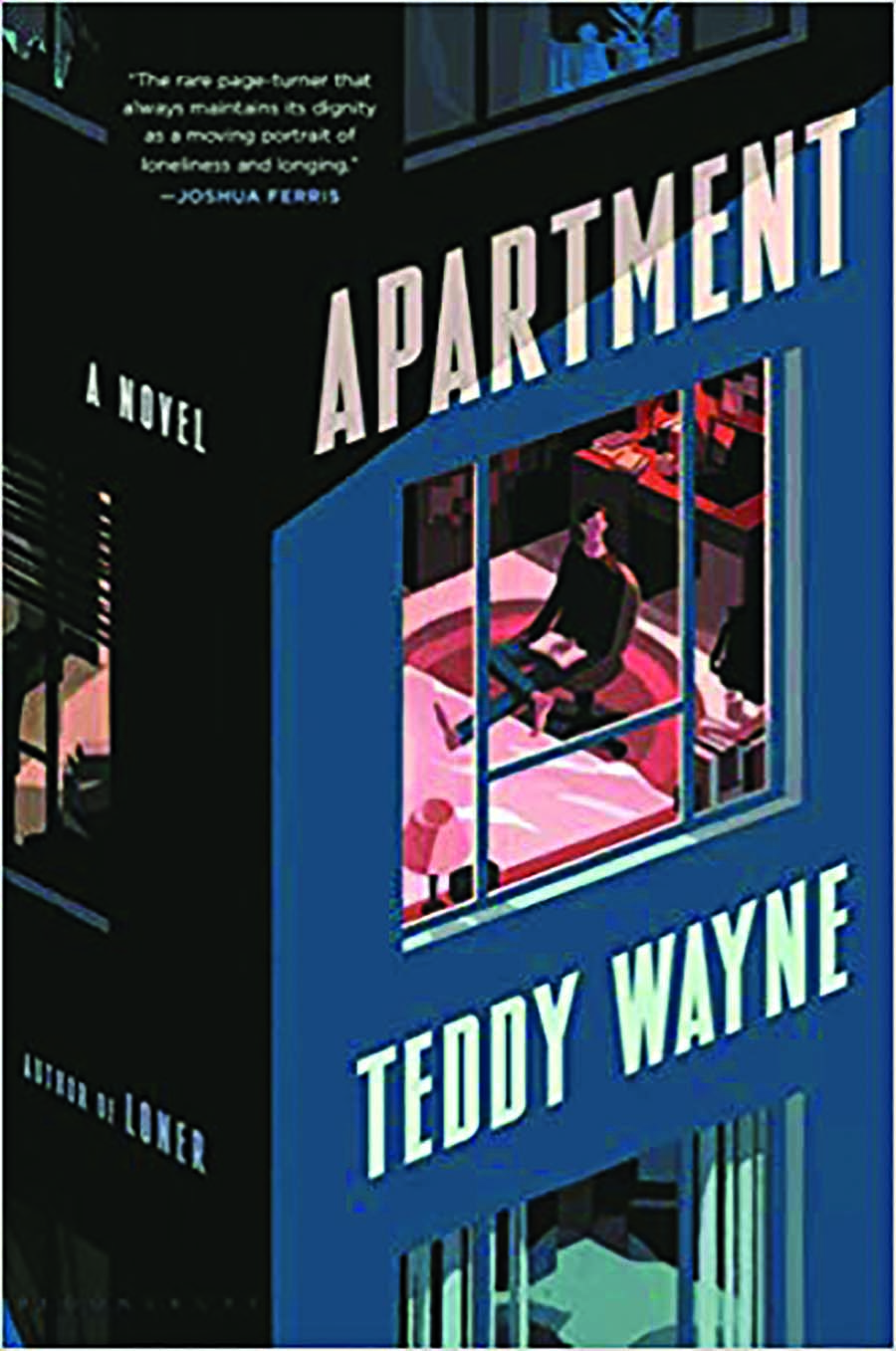The writer Teddy Wayne is an interlocutor of “sad, insecure young men,” in the words of Esquire. His last novel, 2017’s Loner, chronicled the downward spiral of a precocious, resentful, creepy Harvard student. His newest, Apartment, concerns the relationship between two male students in a Master of Fine Arts writing program in 1990s New York.
Since Wayne, the author, is also a male writer who attended Harvard, studied at an MFA program, and lives in New York, you’ll understand if I was a bit hesitant. We have no shortage of writers in New York writing about writers in New York writing — I wondered if there was anything still worthwhile in a genre that generally speaks to contemporary novelists’ limited imaginations and life experiences. But Apartment’s narrowness of scope is what makes this compact, chiseled book effective.

The unnamed narrator, an aspiring fiction writer who has left a job as a magazine copy editor for Columbia’s MFA program, is intelligent and technically competent but insecure about whether he has real talent. Although anxious about his decision to do an expensive graduate program, he benefits from socioeconomic privilege (his family is footing the bill for his tuition and living expenses) and a secret weapon: a great-aunt’s uninhabited and rent-controlled apartment, where he is living semisecretly while he waits to inherit the lease.
Our narrator is shy, ill at ease with both men and women, and lonely. He is thrilled, therefore, to form a connection with Billy, a quiet and out-of-place classmate from small-town Illinois who writes Raymond Carver-esque stories about blue-collar people. Billy’s fiction, the narrator observes, “fell under the film critic Manny Farber’s rubric of ‘termite art,’ a small-canvas work that methodically eats at its own borders, saying more in its straitjacketed space than a bloated saga ever could with its boldfaced Important Themes.”
Billy is broke, money-conscious, and alien to the literary world that our narrator, despite his social anxiety, navigates with familiarity. But people gravitate to the handsome and charismatic Billy, whose raw talent as a writer the narrator registers with an admiration that borders on obsession. When he finds out that Billy is living in the backroom of a bar and considering dropping out of the writing program, he offers to share his apartment, and Billy gratefully accepts. Two insecure writers, each deficient in qualities the other has in abundance, living in the same apartment, and struggling with the same fragile ambition: What could go wrong?
Wayne skillfully captures the subtle tensions of male relationships: men’s tendency to prioritize amicability over emotional engagement, for example, and the ways upbringing and class influence masculinity (in one scene, Billy mocks the narrator’s soft hands — “like a f—ing baby’s skin”). He has a pitch-sensitive ear for the “hey, man” style of Gen-X and millennial male speech and the “admiring but still authoritative voice men employ when paying respects to other men’s superior accomplishments.”
If masculinity is one theme, the other is fear of failure. I was reminded of the Michael Chabon novel (and 2000 film) Wonder Boys. Chabon’s narrator is a once lauded, now washed-up novelist confronting the fact that his muse seems to have died and that one of his writing students, an eccentric loser, may be poised to surpass him. But Wonder Boys is the story of a middle-aged writer worried he’ll never make it again. Apartment is about young writers grappling with the possibility that they’ll never make it at all. Wonder Boys is funny and life-affirming — Apartment is dark and deeply sad.
Dark, sad, and highly readable — I finished this slim novel in three sittings. For a book about two MFA students hanging around New York and not doing much, Apartment is a consuming and even suspenseful bit of termite art. From the start, the reader knows that something about the book’s central relationship is too good to last: Billy’s gratitude for the narrator’s financial generosity is too intertwined with resentment for being treated as a charity case. The narrator’s admiration for Billy is too infused with envy, homoeroticism, and his own profound loneliness.
Billy “could mock me for my privileges,” the narrator bitterly observes, but “I doubted he had ever considered the copious ones he enjoyed, which society didn’t catalogue as overtly,” such as “the love and affection he knew would show up at his doorstep without fail. … I was in the starved ranks of those who had to grasp for it when it was within reach for fear of its slipping away.”
When Apartment’s tension finally reaches its breaking point, the result is not an explosive confrontation but an act of pathetic sabotage. The ending is quiet, plausible, and all the more heartbreaking. Termite art, indeed.
J. Oliver Conroy’s writing has been published in the Guardian, New York, the Spectator, the New Criterion, and other publications.

